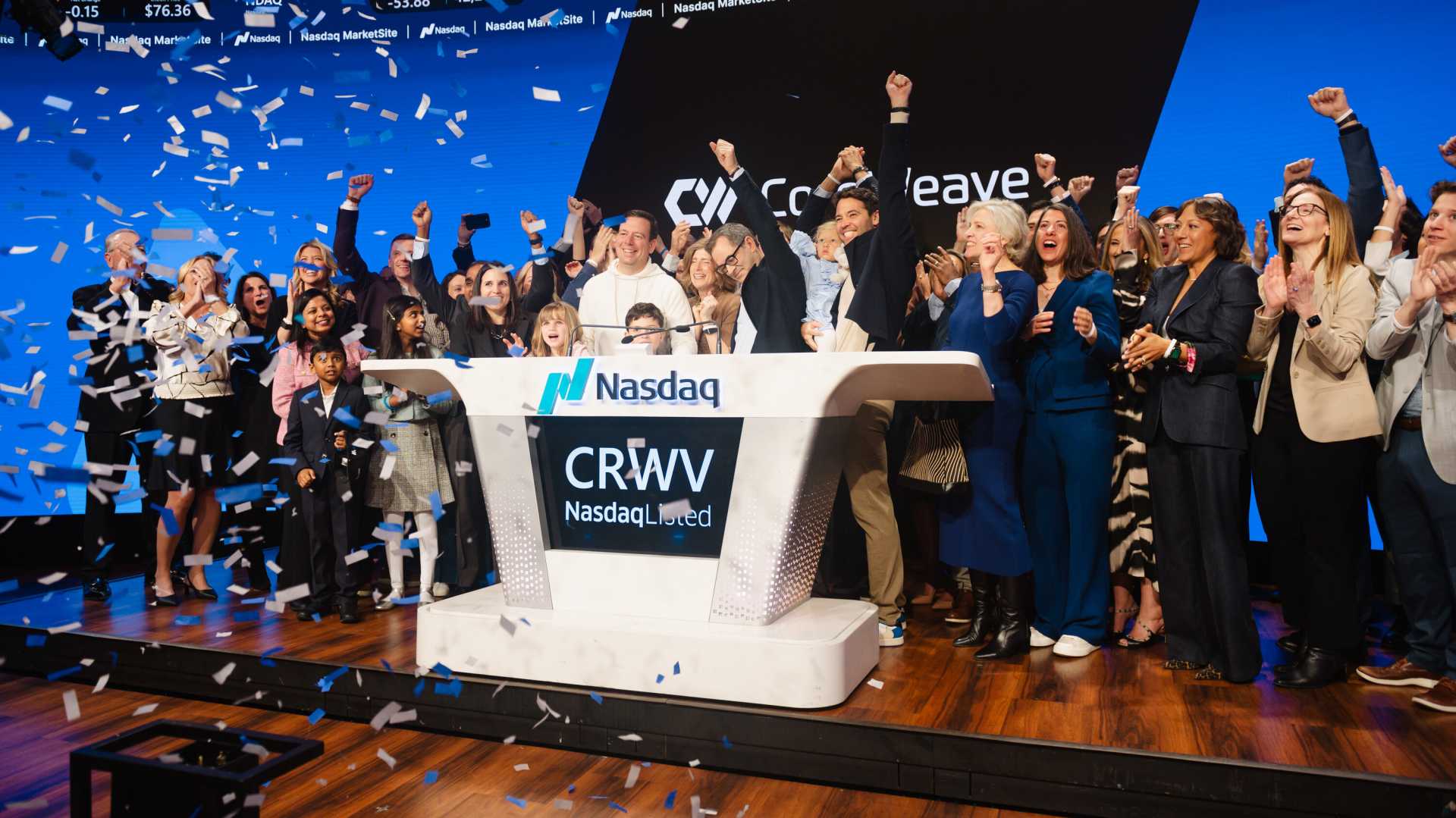Business
CoreWeave’s IPO Stumbles as Investor Confidence Wanes in AI Market

NEW YORK, March 28, 2025 — CoreWeave, an artificial intelligence infrastructure startup, faced significant challenges during its initial public offering this week, pricing its shares at $40 each, well below initial expectations of $47 to $55. The company, which specializes in renting Nvidia graphics processing units (GPUs), is generating $2 billion annually but struggled to attract investor demand amid a challenging public market environment.
The underwhelming results represent the biggest U.S. venture-backed tech IPO since 2021 and come as concerns mount about the sustainability of AI investment. As investor interest in AI appears to be cooling, CoreWeave’s offering was meant to highlight the demand for AI data centers, now a critical component in the computing industry.
Brian Venturo, CoreWeave’s co-founder and chief strategy officer, remarked on the IPO, saying, “I feel like this company has been built on a long list of events where the chips are down and the people at the top being tough as nails, but get it through. The IPO was just another one of those experiences.” Together with co-founders Michael Intrator and Brannin McBee, Venturo’s vision has led the company to a valuation around $20 billion.
Despite falling short in share pricing, Nvidia’s decision to purchase an additional $250 million in shares helped stabilize the IPO process. Intrator elaborated on the importance of their partnership with Nvidia, stating, “They depend upon us to build it faster than anyone else. They depend upon us to find the issues within the software, within the hardware, so that we can troubleshoot it, so that it can be deployed globally.” However, this symbiotic relationship raises questions about CoreWeave’s reliance on Nvidia, which is clearly detailed in their prospectus.
As of now, CoreWeave has amassed about $8 billion in debt, a substantial figure that encompasses the financial risks associated with their business model. Analysts from financial firm DA Davidson have indicated that CoreWeave may account for 6% to 7% of Nvidia’s revenue, with projections showing a growing influence in the AI data center market.
The IPO’s outcome highlights broader concerns affecting the tech industry, particularly within AI investments. Many tech firms, including CoreWeave, are starting to confront market skepticism associated with current economic conditions and inflation. “If equities markets don’t recover, there isn’t going to be a parade of offerings, or premium pricing,” noted one market expert.
Despite the challenges, analysts suggest that the AI sector still has significant potential for growth. CoreWeave’s collaborations with major corporations, including a five-year deal with OpenAI, maintain optimism around its future prospects. OpenAI CEO Sam Altman noted CoreWeave’s role in creating large-scale computing clusters essential for their systems.
Intrator reflects on his unconventional path to becoming a tech CEO, having previously worked in carbon trading before moving into the crypto space with CoreWeave. As the industry landscape shifts, he continues to focus on scaling CoreWeave and aiming for a “best in class” position.
As more companies express interest in AI developments, investor awareness will likely impact future market performance. CoreWeave’s current hurdles serve as a pivotal reminder of the complexities surrounding financing and maintaining sustainable growth within rapidly evolving tech markets.












